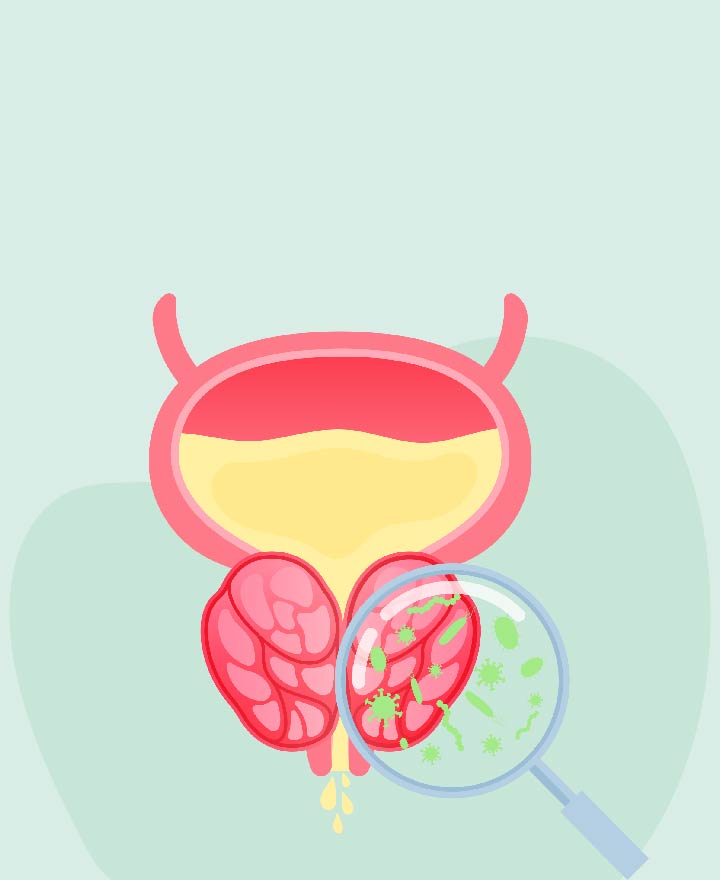

Bladder Pain: Causes and Treatment
Bladder pain can be frustrating. It often shows up without a clear reason and may affect daily life in many ways. Bladder pain can range from mild discomfort to sharp, chronic pain in the lower abdomen or pelvis, often worsened by urination. It can be caused by infections, inflammation, or even chronic conditions. Each condition has its own symptoms, diagnosis methods and treatment approaches. Read on to know more.
Common Causes of Bladder Pain
Bladder pain is one of those phenomenon which almost always indicates there is something wrong with your body. Hence, it is important to get yourself diagnosed and receive the right medical attention as soon as possible. A good health insurance policy can help you do that without hassles. Ghere are a few causes of bladder pain you should know:
1. Urinary Tract Infection (UTI)
• Cause:
Bacterial infection (usually E. coli)
• Symptoms:
◦ Burning sensation during urination
◦ Frequent urge to urinate
◦ Cloudy, strong-smelling urine
◦ Pain in lower abdomen or bladder area
• Treatment:
◦ Antibiotics
◦ Drink plenty of water
◦ Pain relievers for short-term relief
2. Interstitial Cystitis (IC) / Bladder Pain Syndrome (BPS)
• Cause:
Chronic inflammation of the bladder wall (exact cause unknown)
• Symptoms:
◦ Ongoing bladder/pelvic pain (lasting >6 weeks)
◦ Frequent urination (even without infection)
◦ Pain relieved temporarily after urination
◦ Pain during sex (dyspareunia)
• Treatment:
◦ Bladder training and physical therapy
◦ Oral medications
◦ Bladder instillations (medications inserted directly into the bladder)
◦ Diet changes (avoid caffeine, spicy foods, citrus)
◦ Neuromodulation or surgery in severe cases
3. Bladder Stones
• Cause:
Mineral build-up, often due to incomplete emptying of the bladder
• Symptoms:
◦ Severe bladder pain
◦ Blood in urine
◦ Difficulty urinating or interrupted stream
• Treatment:
◦ Surgical removal (e.g., cystolitholapaxy)
◦ Treat underlying causes like prostate enlargement or nerve damage
4. Bladder Cancer
• Cause:
Malignant growth in the bladder lining
• Symptoms:
◦ Painful urination
◦ Blood in urine (painless hematuria)
◦ Lower abdominal pain
• Treatment:
◦ Depends on stage: Surgery, chemotherapy, immunotherapy (e.g. BCG), radiation
5. Pelvic Floor Dysfunction
• Cause:
Muscle tightness or spasm in the pelvic floor
• Symptoms:
◦ Pain in bladder area
◦ Difficulty urinating or incomplete emptying
• Treatment:
◦ Pelvic floor physical therapy
◦ Muscle relaxants
◦ Biofeedback or trigger point release
6. Sexually Transmitted Infections (STIs)
• Examples:
Chlamydia, gonorrhea, herpes
• Symptoms:
◦ Burning during urination
◦ Pelvic or bladder pain
◦ Vaginal or penile discharge
• Treatment:
◦ Antibiotics or antivirals
◦ Partner testing/treatment is important
7. Radiation Cystitis
• Cause:
Bladder irritation from radiation therapy (e.g., for pelvic cancers)
• Symptoms:
◦ Bladder pain
◦ Frequent urination
◦ Blood in urine
• Treatment:
◦ Medications to protect the bladder lining
◦ Bladder irrigation or instillations
◦ Hyperbaric oxygen therapy in some cases
8. Chemical or Drug Irritation
• Cause:
Sensitivity to chemicals in hygiene products or medications (e.g., chemotherapy agents like cyclophosphamide)
• Symptoms:
◦ Burning or aching in the bladder
◦ Urgency/frequency
• Treatment:
◦ Stop exposure to irritants
◦ Treat underlying inflammation
General Treatments for Bladder Pain Relief
1. Medications like antibiotics, anti-inflammatories, bladder relaxants
2. Lifestyle changes like avoid caffeine, alcohol, and spicy foods
3. Pelvic therapy such as physical therapy and biofeedback therapy
4. Pain management by using heat pads, painkillers, and nerve pain meds
5. Surgical options in cases of stones, tumours, or severe IC
While these options are know to be effective, it is important that do not rely on remedies and seek correct medical attention. Your cashless health insurance will ensure that you do not have to worry about medical costs while you focus on your health.
When to See a Doctor
See a healthcare provider if you experience:
• Bladder or pelvic pain that persists >2 days
• Blood in urine
• Pain during urination
• Fever, chills, or vomiting
• Frequent or urgent urination without clear cause
Conclusion
Bladder pain is not always a simple problem. It can come from infections, long-term conditions like interstitial cystitis or even more serious causes such as bladder cancer. Each condition shows different signs and needs different types of care.
Because some bladder-related issues may last long or need costly procedures, having a good health insurance plan might make it easier to manage both medical and financial stress. Be it regular check-ups, hospital visits or advanced treatments, insurance may help cover the costs and reduce the burden on families.
One of the important components of our overall wellness is also being financially secured. Healthcare emergencies can happen any time, but a good health insurance policy can protect you from such uncertain situations. To know more about Wellness and other health related tips, visit the wellness corner.
Sources: webmd.com, urologyhealth.org, healthline.com
Disclaimer: This blog provides general information and discussions about health and related subjects. The information and other content provided in this blog, website or any linked materials are not intended and should not be considered or used as a substitute for medical advice, diagnosis or treatment. Kindly contact your doctor before starting a new medicine or health regime.
Related Articles
List of Gastrointestinal Diseases in the Elderly
Chronic Kidney Disease Symptoms in Seniors
Unexpected Health Challenges that Come with Ageing
Small Intestine Cancer Risk Factors
Haemorrhoids: Symptoms, Causes, & Treatment
Published on July 28, 2025














 Health Insurance
Health Insurance  Travel Insurance
Travel Insurance  Car Insurance
Car Insurance  Cyber Insurance
Cyber Insurance  Critical Illness Insurance
Critical Illness Insurance
 Pet Insurance
Pet Insurance
 Bike/Two Wheeler Insurance
Bike/Two Wheeler Insurance  Home Insurance
Home Insurance  Third Party Vehicle Ins.
Third Party Vehicle Ins.  Tractor Insurance
Tractor Insurance  Goods Carrying Vehicle Ins.
Goods Carrying Vehicle Ins.  Passenger Carrying Vehicle Ins.
Passenger Carrying Vehicle Ins.  Compulsory Personal Accident Insurance
Compulsory Personal Accident Insurance  Travel Insurance
Travel Insurance  Rural
Rural